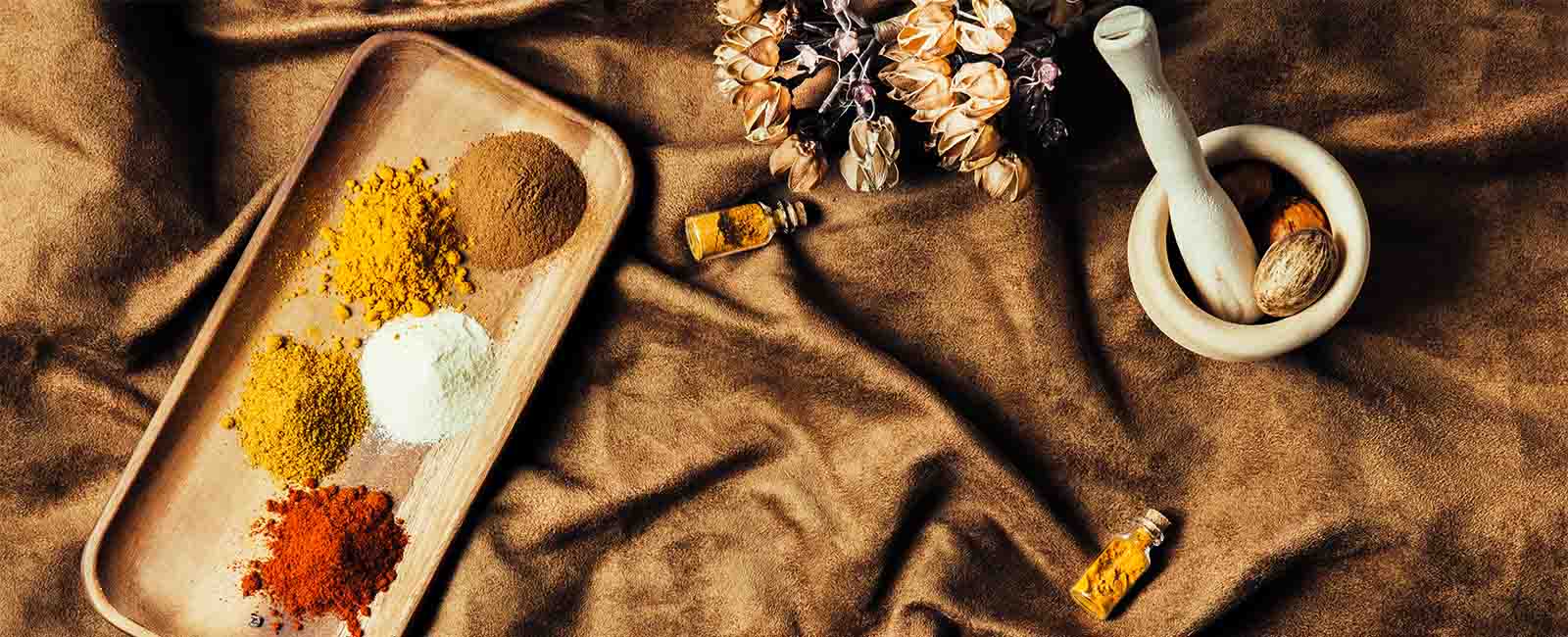
Herbal Medicine in Ayurveda| Traditional Remedies for Modern Ailments

Nature has always been a reliable source of healing, offering remedies that have been used for centuries to treat various ailments. In Ayurveda, the ancient system of holistic healing, herbal medicine plays a central role in promoting health and restoring balance. Ayurvedic herbs are revered for their therapeutic properties and are considered potent allies in addressing modern health challenges. Let’s explore the world of Ayurvedic herbs, the significance of herbal medicine, and how these traditional remedies continue to hold relevance in our modern lives.
The Wisdom of Ayurvedic Herbs:
Ayurvedic herbs have been used for millennia to treat a wide range of health issues. The rich botanical diversity of the Indian subcontinent provides a vast array of medicinal plants, each with its unique healing properties. Ayurveda recognizes the innate intelligence of these herbs, as they work in harmony with the body’s natural healing processes, promoting balance and well-being.
Herbal Medicine in Ayurveda:
- Turmeric (Curcuma longa): Turmeric is one of the most well-known Ayurvedic herbs, revered for its anti-inflammatory and antioxidant properties. Curcumin, the active compound in turmeric, has been extensively studied for its potential in addressing various health conditions.
- Ashwagandha (Withania somnifera): Ashwagandha is an adaptogenic herb that helps the body adapt to stress and restore balance. It supports the nervous system, enhances vitality, and promotes overall well-being.
- Triphala: Triphala is a combination of three fruits: Amalaki (Indian gooseberry), Bibhitaki (Terminalia bellerica), and Haritaki (Terminalia chebula). This powerful herbal blend supports digestion, detoxification, and overall gut health.
- Brahmi (Bacopa monnieri): Brahmi is a revered Ayurvedic herb known for its cognitive-enhancing properties. It supports memory, mental clarity, and reduces mental fatigue.
- Tulsi (Ocimum sanctum): Tulsi, also known as Holy Basil, is considered a sacred herb in Ayurveda. It is cherished for its immune-boosting, adaptogenic, and stress-relieving properties.
Herbal Medicine: Modern Relevance and Research
As interest in natural remedies grows, Ayurvedic herbs have gained recognition in modern medical research. Studies have explored the therapeutic potential of these herbs, validating their traditional uses. Scientists continue to investigate the molecular mechanisms behind the efficacy of Ayurvedic herbs, revealing the wisdom held by these ancient remedies.
Herbal Medicine in Modern Lifestyle:
The fast-paced and stressful modern lifestyle can lead to various health challenges. Ayurvedic herbs provide a gentle yet effective approach to support the body’s natural healing mechanisms. Incorporating Ayurvedic herbs into our daily routines can help alleviate stress, enhance immunity, and address common health concerns.
Safety and Expert Guidance:
While Ayurvedic herbs offer tremendous benefits, it is essential to use them with care and seek guidance from qualified Ayurvedic practitioners. The dosages, preparations, and combinations of herbs should be personalized according to an individual’s unique constitution and health needs.
Conclusion: Embracing the Timeless Wisdom of Herbal Medicine
The use of herbal medicine in Ayurveda transcends time and remains as relevant today as it was centuries ago. Ayurvedic herbs offer a natural and holistic approach to health and well-being, supporting the body’s innate capacity to heal and thrive. As we embrace the wisdom of herbal medicine, we connect with the healing power of nature, rekindling a profound connection with the source of our wellness.
Incorporating Ayurvedic herbs into our lives enables us to embrace the traditional remedies for modern ailments, nourishing our bodies, minds, and spirits with the gifts of nature. Let us cherish the rich legacy of herbal medicine in Ayurveda and experience the transformative benefits these traditional remedies bring to our modern lives.





